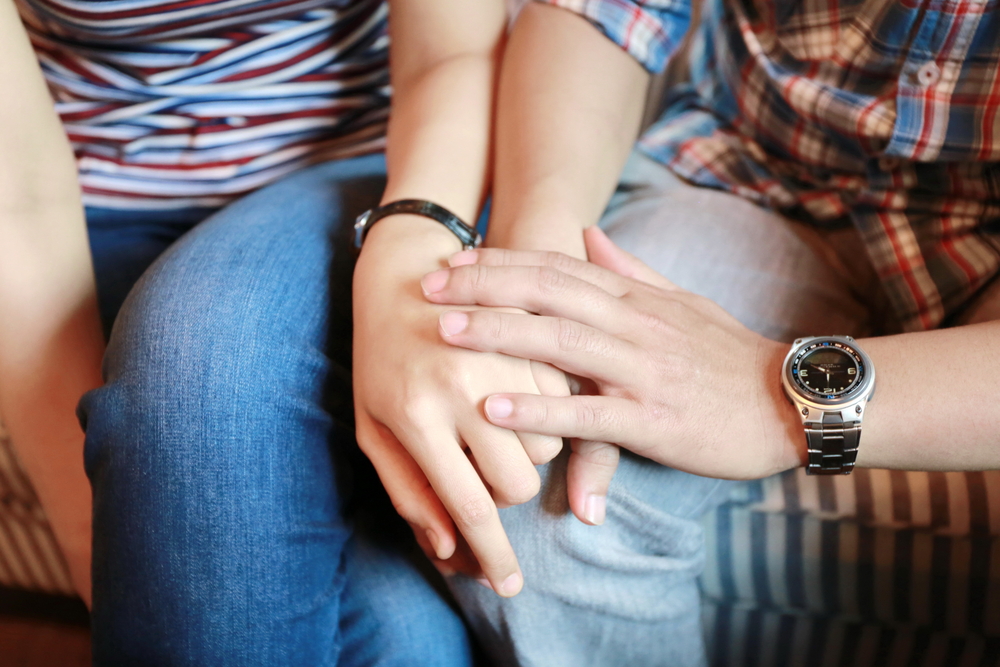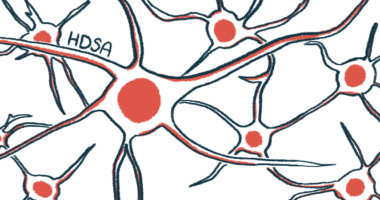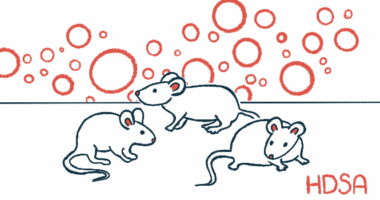Wondering and Worrying: The Months Before Diagnosis

I imagine some of you know people who are experts at worrying. Pick any situation and these worrywarts will rev up with a highlight reel of catastrophic scenarios usually involving pain, blood, and a depressing outcome. For the record, I’m the opposite of that kind of person. I fall into the cup-is-not-only-half-full, but-it’s-practically-overflowing department.
However, last summer, I did something out of character: I started to worry. To understand why, I have to hit the rewind button and go back in time a bit to before having a young adult daughter about to graduate from college; to a time of promise and hope, before my family received the kind of devastating news that no one ever wishes to hear.
I’ll go back to when I met Jill, the love of my life, and her family, which included her parents and young daughter. Jill was a single mother trying to balance work, raise a child, and help her mother care for her father, who had a disease I had never heard of before called Huntington’s.
Her father’s symptoms were fully manifested back then. He constantly twitched, was full of anxiety, and his concept of reality was distorted. For instance, he used to think that clothes that had been in the dryer for an hour were wet, and he would insist that they be put back in even though they were dry.
Jill told me that her father’s disease meant that she had a 50 percent chance of having it, too. And if she had it, her daughter would have a 50 percent chance as well. These were scary odds, but I loved her and didn’t worry because I’m not that kind of guy, remember? The possibility of taking on a caregiving role like her mother and her, and that she could suffer like her father, did not send me fleeing for the hills. Instead, she became my wife.
Fast-forward to Christmas 2017. I noticed that her eyes would roll at various times, which in the movement disorder world is known as chorea. I tried to rationalize it by saying that my many jokes and puns had caused her to roll her eyes — trust me, they were all ridiculous. I also noticed that her toes would wiggle at times.
How do you tell someone that you think she has the same disease that devastated her father? The same disease that caused immense sadness in her daughter, who witnessed her grandfather’s suffering? The same daughter who was less than a year away from graduating from one of the best universities in the world, with a bright future ahead of her?
I’ll tell you how you tell her: You wait — for months and months — because you don’t want to scare her. Because, after all, I’m a journalist, not a doctor.
But one day, during the summer of 2018, you tell her after she asks you point-blank: “Do you think I have it?” One factor in my delay was that she repeatedly had shared with me how often she had been thinking and worrying about it. Both of us were afraid to say it out loud at the time because we knew that talking about it would make it real. It would require us to face it and learn the answer, once and for all.
Once the conversation was out in the open, I made an appointment for her genetic test. And that summer, I began to worry. When Test Results Revelation Day arrived — a month after she had her blood drawn and sent to the lab for analysis (in other words, a month of agonized waiting) — the doctor’s face said it all as we waited for her to share the news.
The worrywarts I have known over the years have shared with me some negative outcomes at times, but those paled in comparison to this one. What Jill had tried not to think about for 20 years, since the day she found out about her father, what I had tried not to worry about, what we hoped we would never experience, became cold, hard truth on Aug. 22, 2018. My dear, beautiful, brilliant, loving, patient, insightful, and hilarious wife had tested positive for Huntington’s.
The time to worry was over, and the time to deal with reality was here.
In the weeks ahead, I will share with you our journey as we navigate living with this insidious disease.
***
Note: Huntington’s Disease News is strictly a news and information website about the disease. It does not provide medical advice, diagnosis, or treatment. This content is not intended to be a substitute for professional medical advice, diagnosis, or treatment. Always seek the advice of your physician or other qualified health provider with any questions you may have regarding a medical condition. Never disregard professional medical advice or delay in seeking it because of something you have read on this website. The opinions expressed in this column are not those of Huntington’s Disease News, or its parent company, Bionews Services, and are intended to spark discussion about issues pertaining to Huntington’s disease.







Beverly Peterson
My husband received the same bad news in 2008. Here we are, 11 years later, still enjoying life despite some changes and limitations that we have learned how to cope with. We are luckier than most families affected by HD because his progression has been so slow. I hope that you, like my husband and I, will have time to adjust as the inevitable changes come. Meanwhile, we find a sense of purpose by getting involved in clinical trials, and the news about some exciting medical possibilities keep us cautiously optimistic. Reach out to your HD Center of Excellence, and stay positive.
Carlos Briceño
Hi, Mrs. Peterson, thank you so much for sharing all that. I'm glad to hear that you all have learned to cope and that his progression has been slow. Hope is what keeps us going too. One day at a time, as they say... Treasuring all the moments all the time...